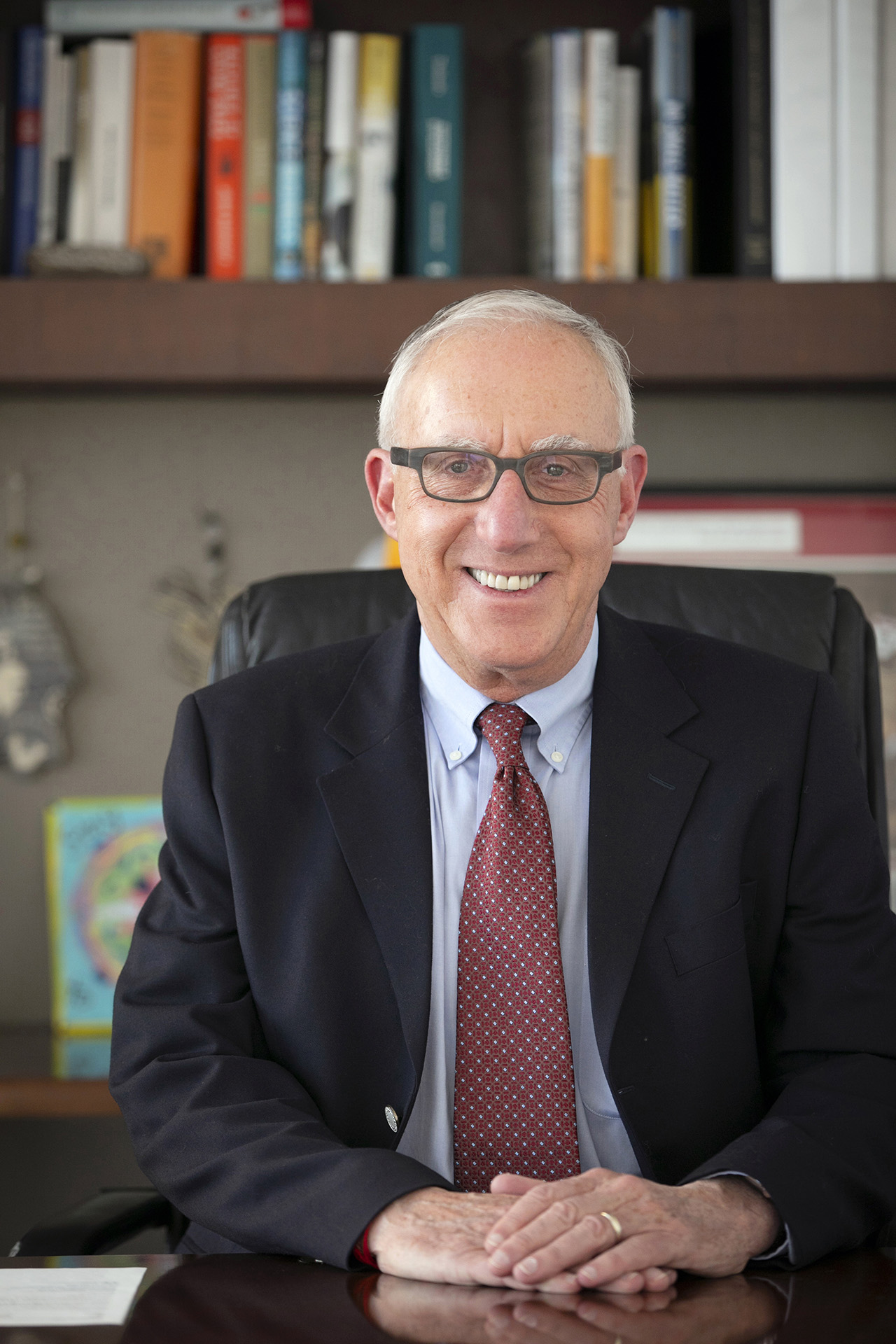
Turning 2 decades of discovery into impact
Isaac Kohlberg to step down as senior associate provost and chief technology development officer
After 20 years of service to the University, Isaac Kohlberg will step down from his role as Harvard University’s senior associate provost and chief technology development officer at the end of this year, concluding an extraordinary chapter that has significantly influenced Harvard’s vision and strategy for advancing research for the public good.
Kohlberg’s two decades at Harvard have been dedicated to one mission: advancing the University’s discoveries into practical applications that deliver impactful solutions for society. He played a key role in building broad corporate relationships and developing commercialization strategies to further advance Harvard research. Kohlberg joined Harvard in 2005 and established the Office of Technology Development (OTD) by consolidating the University’s technology transfer efforts into one centralized program. This initiative aims to advance innovations emerging from Harvard labs through licensing and the creation of startups, while also fostering corporate collaborations with industrial entities.
Kohlberg built a team with extensive industry experience and strong technical backgrounds. Together, they established a proactive culture in which OTD team members serve as the primary point of contact for Harvard researchers, facilitating industry collaborations and venture creation. Under Kohlberg’s leadership, there was a shift in how Harvard approached the commercialization of innovations developed in its labs; the University’s strategy became more supportive and engaged, increasing the pace of startup formation and pursuing industry relationships to advance the University’s science.
“Investments in science help advance knowledge, fuel progress, and spur economic development. That sense of mission runs through Harvard’s innovation enterprise, and we are grateful for the leadership role Isaac played in supporting a thriving culture of discovery and innovation,” said Harvard University Provost John Manning.
Kohlberg is widely recognized for his vision in forging robust collaborations between academia and industry, as well as for establishing funding mechanisms that bridge the critical development gap between academic research and real-world therapies or applications. Under his leadership, OTD established three accelerator funds: the Blavatnik Biomedical Accelerator, the Grid Accelerator, and the Climate and Sustainability Translational Fund. These initiatives provide essential funding and business development support to translational research projects. Consequently, these accelerators have played a crucial role in enabling research teams to commercialize their discoveries, resulting in the creation of numerous startups and licensed technologies derived from foundational research conducted at Harvard.
These accelerators have supported hundreds of research projects, launched numerous startups, and drawn millions in industry and venture investment back to Harvard. To name just a few, research backed by these accelerators has resulted in innovative cancer therapies licensed to biotech firms, a startup developing a new class of antibiotics created by Harvard chemists, and Harvard-developed technologies that are now featured in products worldwide.
Additionally, under Kohlberg’s leadership, the University formed landmark collaborations with global companies. These relationships brought not only research funding — industry-sponsored research more than doubled during his tenure — but also infused new energy and opportunities into innovations being developed at Harvard.
In the past five years alone, the advancement of Harvard research has resulted in the launch of 96 startups raising nearly $2.8 billion, more than 2,000 reports of innovations, 897 U.S. patents held by Harvard, and $300 million in research funding through industry partnerships.
Crucially, Kohlberg was also dedicated to safeguarding academic independence and making a broad societal impact. Harvard’s approach to corporate relationships — an effort that has grown into a robust collaboration between OTD, the Office of the Vice Provost for Research, and others — ensures that faculty members determine research agendas and that discoveries, even when developed commercially, remain accessible for humanitarian licensing or use in developing countries.
Kohlberg leaves behind a program recognized nationally as a model of excellence — one that combines deep expertise in industry relations, commercialization, and venture creation with a distinctly Harvard-style sense of duty to society.
“As I begin the next chapter of my life, I am deeply proud of all we have accomplished together,” Kohlberg reflected. “Harvard’s community has shown what’s possible when great ideas are met with entrepreneurial spirit, smart funding, and a commitment to the public good. The next wave of discovery and impact is just beginning.”
Before joining Harvard in 2005, Kohlberg was the CEO of Tel Aviv University’s Economic Corporation. From 1989 to 2000, he held various roles supporting innovation at New York University, including vice provost, vice president for industrial liaison, and head of the NYU School of Medicine’s Office of Science and Research. From 1982 to 1989, he served as CEO of YEDA, the commercial arm of the Weizmann Institute of Science in Israel.
Harvard will launch a search for Kohlberg’s successor in the coming weeks, and Kohlberg has committed to serve as an adviser to the University.




